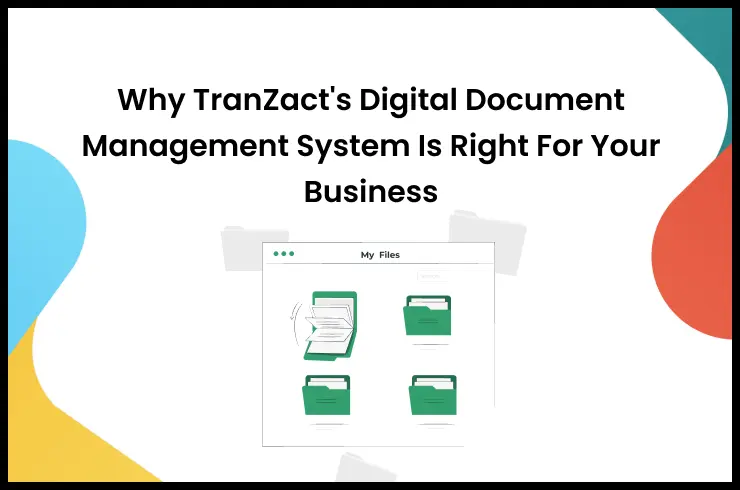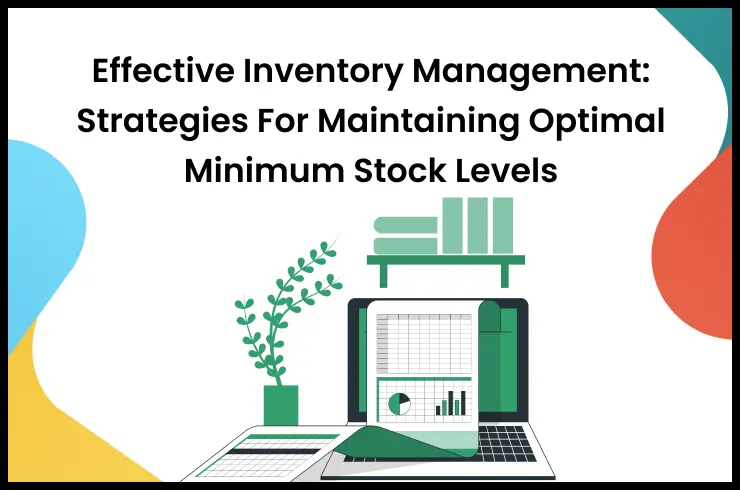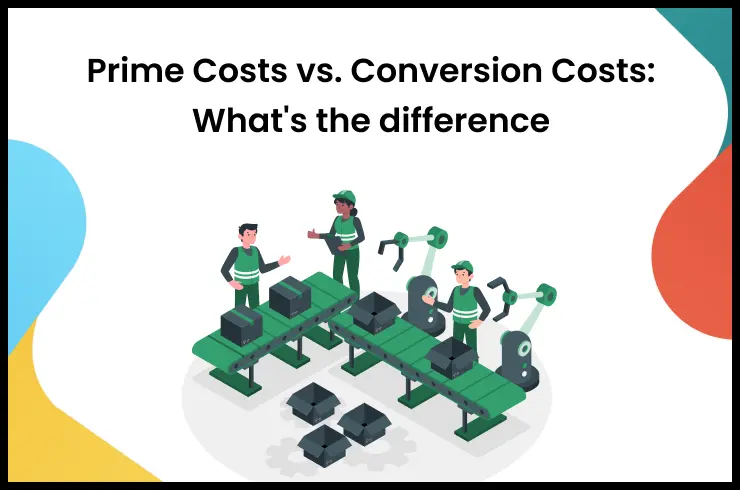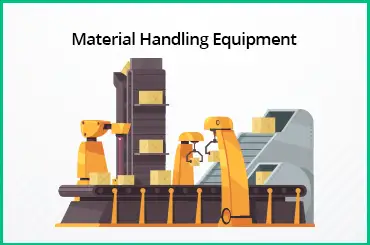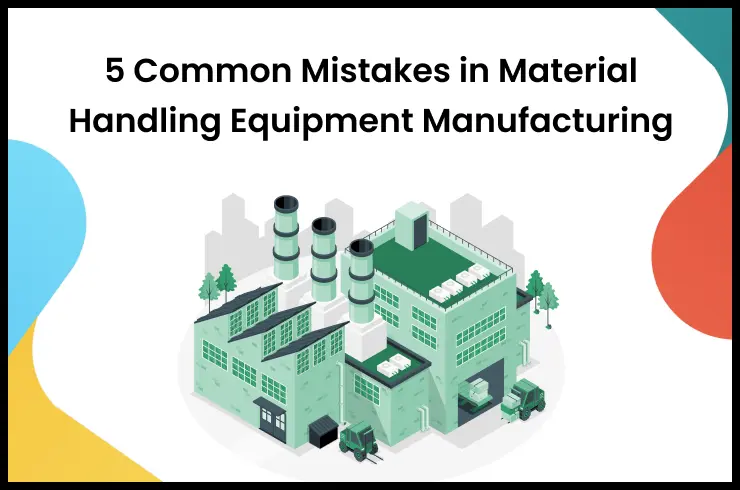Here is an in-depth guide on what is contract manufacturing, its operations, functions, and more. Contract manufacturing is popular in the manufacturing industry to mitigate the need for resources, cash, and time allocated to in-house tasks, that can instead be assigned externally. It allows businesses to collaborate with other companies to fill orders without investing in heavy machinery, knowledge, or adequate tools.
What Is Contract Manufacturing?
Contract manufacturing is a process where the business employs an external manufacturer to make its products or components as part of a contract manufacturing business model. It benefits the contracting company since it utilizes an expert manufacturer's capabilities and knowledge. Often called outsourcing or 'outsource manufacturing', contract manufacturing involves third-party manufacturers employed as subcontractors.
Businesses look at their available resources, such as equipment, labor, and raw materials, to determine whether they can produce a given product. To find the finest company to manufacture their product, the companies conduct interviews and contact potential vendors.
One company gets into an agreement with another company to produce the desired goods, parts, components, or entire products for a stipulated time. Outsourcing components or products allows companies to compete in areas previously inaccessible.
Contract manufacturers give businesses an additional choice when deciding on their manufacturing requirements and are equipped to handle project requirements in resources, machinery, and personnel.
It is a methodology that conserves resources and boosts earnings while getting the advantages and know-how of a highly skilled and productive manufacturer.
Types of Contract Manufacturing
A manufacturing contract outlines specifications, quality requirements, manufacturing conditions, product volume, and delivery arrangement. Companies can enter into various contract manufacturing agreements for enhanced production. Here are some types of contract manufacturing:
Private Label Manufacturing
The company hires an Original Design Manufacturer (ODM) for all its operations. ODM conceptualizes design, oversees production, and keeps the product under the VAR label. Private label manufacturing is best for the hiring company as it does not require capital and product research and development. However, remember that the hiring company will need certain basic knowledge of design and manufacturing aspects that need to be subcontracted.
Individual Component Manufacturing
It is a perfect solution for companies without the in-house manufacturing capabilities to produce all the components necessary for their final product. Individual component manufacturing is responsible for manufacturing a component designed during product development, and other companies assemble it into its final finished state.
Labor or Service Subcontracting
Labor subcontracting increases production efficiency and cost savings by delegating some aspects of the manufacturing process to a subcontractor. Contract manufacturers act as subcontractors to a general contractor, providing specialized services, lower costs, and faster production cycles for complex products.
End-to-End Manufacturing
End-to-end manufacturing is similar to private label manufacturing, except that the contract manufacturer is more involved in product creation and provides input to the product manager in end-to-end manufacturing. It is perfect for businesses that want to produce fast, affordable, and high-quality finished goods.
Short-Term Contract Manufacturing
Short-term contract manufacturing might be a helpful tool when a product's demand rises exponentially. It is advantageous when generating prototypes and small-batch products since it helps businesses avoid the added costs of labor and raw materials. Non-disclosure agreements (NDAs) and service-level agreements (SLA) are among the contractual arrangements for short-term production that are the same as those for longer-term projects.
Electronic Contract Manufacturing
Electronic contract manufacturing enables businesses to concentrate on research and development while contract manufacturers handle manufacturing and production. It allows them to produce high-quality electrical goods rapidly and efficiently while also regulating expenses. It is helpful for electronic companies as the electronic contract manufacturing units comprise larger facilities, advanced machinery, and more employees.
Contract Manufacturing Example
Contract manufacturing allows companies to simplify the processes involved in production, quantity, quality, shipping, and pricing. Here are some industrial examples where contract manufacturing is useful:
1. Marketing Industry
In certain cases, a marketing agency or department may need more resources or expertise to produce an engaging commercial, website, or billboard. They may have some inputs done on-site, like copywriting, editing, and design, and a contract manufacturer can handle other operations in the company. Contract manufacturers include video producers, site designers, and sign artists and work with the marketing team.
2. Pharmaceutical Industry
In the pharmaceutical sector, contract manufacturers offer consistency, scale-up, and registration batches for drug development and commercial production. Contract manufacturers work with several pharmaceutical development manufacturers, and compliance documentation with FDA regulatory requirements can also be outsourced.
3. Manufacturing Industry
Heating, air conditioning, and ventilation (HVAC) contractors install forced air systems that involve sheet metal ventilation systems in homes and businesses. HVAC contractors offer parameters to the sheet metal fabricator and attach them to the HVAC system. Depending on the installation and the company size, some companies produce these in-house, while others hire outside sheet-metal fabrication companies.
Benefits of Contract Manufacturing
Contract manufacturing can help companies with various benefits. It can help companies with limited resources and greater capabilities for enhanced production efficiency. Outsourcing can lead to high-quality products, as contract manufacturers have the tools and expertise to deliver the best products.
Here are some advantages of employing contract manufacturers for your business:
Cost Reduction
Hiring a contract manufacturer saves money on labor and equipment costs and avoids the need to hire workers to produce parts or goods in-house. Clients only need to pay the agreed-upon contract price because contract manufacturers have their staff and infrastructure. Paying another company to manufacture a component or product can help reduce overhead costs and improve return on investment while providing resource and labor savings.
Resource Prioritization
Contract manufacturing can help firms save money and resources while letting them concentrate on their primary goals and skills. It can support employee hiring, sales support, and marketing plans.
Faster Market Entry
Contract manufacturing enables businesses to keep a steady flow of high-quality products while increasing brand recognition and strengthening connections with prospective partners and subcontractors.
Reduced Manufacturing Time
Contract manufacturing reduces manufacturing time, leading to increased speed to market and improved delivery time and service to customers. It happens as the contract manufacturers produce components or whole products to assist the production line of companies.
Suitable for Small Businesses
It is excellent for startups and small businesses as it provides accurate cost estimates and deadlines and is ideal for requirements that need end-to-end services to handle everything.
Disadvantages of Contract Manufacturing
Contract manufacturing can be beneficial, but finding a reliable company that fits all your needs can be challenging. It is not devoid of any downsides of this process. Here are some of the disadvantages of contract manufacturing that businesses should keep in account:
Threat to Confidentiality of Company's Information
An NDA is required from both parties to protect the privacy of secret information and concepts. If the data is not protected, the competitors may misuse this information to copy or strengthen their own competitive advantage.
Cultural Differences
It may be challenging to comply with laws, standards, and regulations due to misunderstandings and language barriers caused by cultural differences between the hiring firm and the contract manufacturer.
Reliability of the Contract Manufacturer
It is crucial to properly investigate potential partners for contract manufacturing to make sure they have a history and references that can be verified. An unreliable partner could significantly negatively affect the outcomes desired and ultimately cost money.
Higher Long-Term Charges
There are long-term financial benefits to on-site production. The company might get price reductions on the cost per unit when dealing with a contract manufacturer, but there are additional elements that affect expenses, including transportation, labor, quality assurance, and profitability. Long-term profit and lower expenses may be achieved by investing in the fixed cost of the equipment for in-house production. This factor is subjective and must be properly evaluated.
Risks of Contract Manufacturing
Finding the right company to work with is essential to protect intellectual property and preventing leaks of company secrets. It is also vital to produce genuine project documentation to keep track of the budget, schedule, and project plan.
Limited Control of Process
It can lead to a difference of interests if the business has limited control over the manufacturing and production of the product. In contrast, the contract manufacturer may have little to no say in the design. The contractor can offer suggestions, but there is no assurance that they will be accepted.
Compromise on Product Quality
Choosing the wrong contractor might result in low-quality items, harming the company's reputation. Low-quality products can result in misunderstanding, misalignment between organizations, or a conflict of opinion.
Job Displacement
Transitioning from in-house manufacturing to outsourcing can lead to the displacement of employees, leading to increased costs.
Supply Chain Concerns
Contract manufacturing may result in a lack of control over the supply chain, particularly if the product calls for expensive or dangerous materials. It is crucial to pick a contract manufacturer with a good reputation and include responsibility in the contract to reduce this risk. A robust supply chain will be made possible by this.
Lack of Production Knowledge
Businesses may otherwise maintain information related to techniques and processes involved in in-house production, which is absent in the case of the contract manufacturer. The key to this solution is choosing a specialized contract manufacturer who specializes in the industry. It is achievable if the contract manufacturer has the requisite skills, knowledge, and equipment to meet the criteria. Communicate your requirements adequately to the manufacturer for comprehensive contract manufacturing services.
How to Choose the Right Contract Manufacturer?
Selecting the right contract manufacturer is crucial for cost savings and establishing a long-lasting connection. Evaluate their qualifications and competencies to ensure they satisfy the requirements.
Here are some key elements that businesses can look for in an excellent contract manufacturer:
Industry Standards and Compliance
An international standard, ISO 9001, outlines the basic requirements for a quality management system (QMS). It is excellent for companies to develop effective, structured, repeatable processes, stakeholder satisfaction, ensure cost savings, and a commitment to continual improvement. Companies that adopt this accreditation are monitored via audits for compliance.
Technical Competence
Contract manufacturers must have strong human resources to develop manufacturing processes and quality control procedures to ensure the reliability of their products. To boost production efficiency and product quality and keep up with industry and technology changes, advanced equipment should be available.
Production Capacities to Meet Quality and Demand Surges
Contract manufacturers must be able to handle demand surges and supply high-quality products at the time of delivery as agreed upon. Product quality should not be compromised because failure to satisfy client criteria may result in downtime or defective goods reaching consumers.
Facilities
Businesses must employ appropriate measures to ensure that the facilities of a contract manufacturer are organized, clean, and adequately maintained for product quality and safety for workers. Facilities must be visited and inspected regularly, and the location should be well-managed and clean, with well-maintained machines and equipment, experienced staff, and an organized production process.
Choose TranZact for Best Contract Manufacturing Solutions
Contract manufacturing is a business model in which a company hires a contract manufacturer to provide products and services with cost benefits, increased quality and efficiency, and enhanced responsiveness to variable product demand. Companies can benefit in the short and long term with the right resources and services. With an understanding of what is contract manufacturing, you can make optimum use of this functionality based on the field, industry, and market trends.
TranZact enables businesses to carry out smooth contract manufacturing activities and monitor the same on a centralized dashboard along with the rest of their production tasks. This provides them with higher business control while enhancing product deliveries.
FAQs on Contract Manufacturing
1. What is the difference between franchising and contract manufacturing?
Franchisee arrangements involve paying a royalty based on units manufactured and sold to the company. In contrast, contract manufacturing consists in producing goods externally at a specified cost per unit with inputs provided by the primary company.
2. What are the advantages of contract manufacturing?
Contract manufacturing advantages include scalability, reduced costs and labor, faster reachability to the market, resource savings, and end-to-end quality improvement.
3. Which industries utilize contract manufacturing?
Contract manufacturing is crucial for various industries like toys, automobiles, pharmaceuticals, chemicals, packaging, electrical and electronics, food and beverage, fast-moving consumer goods, textile, and more.







